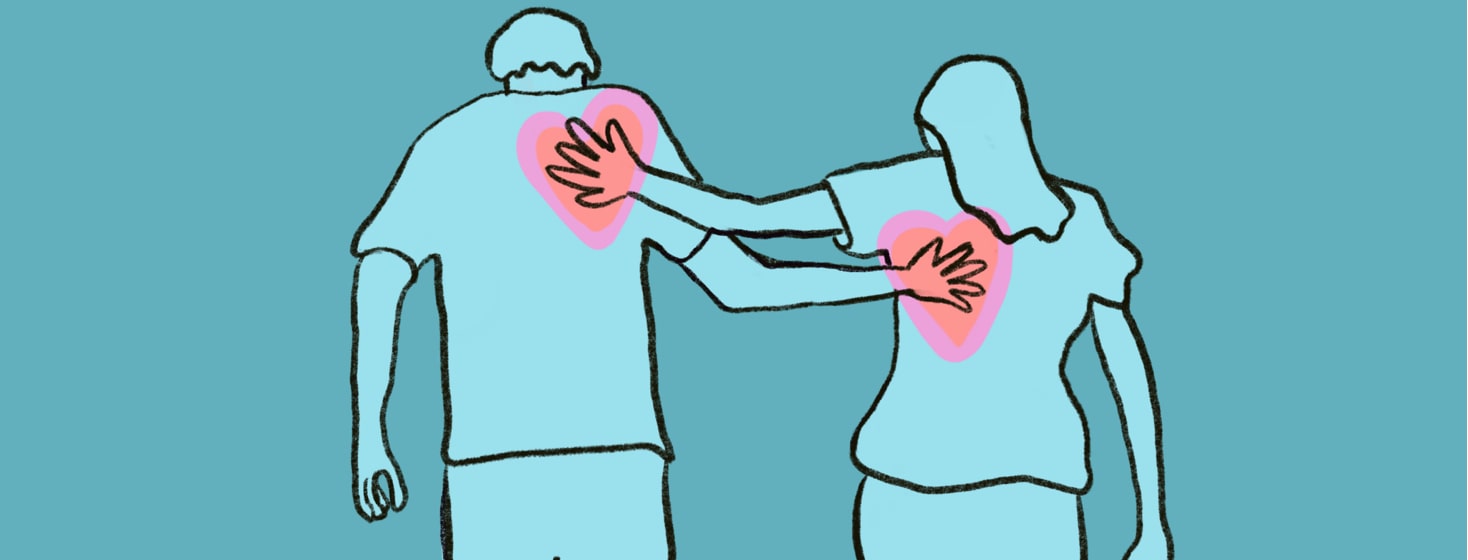A New Term to Me: Who is this Person Called Caregiver?
Prior to my husband's diagnosis of prostate cancer, I had never heard the term "caregiver." And initially in our cancer journey, caregiver was not a term I used when caring for my husband. I always wanted to be there for him and do whatever was in my power to help him heal and live the best life possible.
I've been his wife for close to 50 years; he's my partner and the love of my life. I'm all in on wherever this cancer journey takes us. I've conceded, though....since caregiver is the common and accepted term for someone helping a patient, that's the lingo I now use. I admit now, too, that's it's an appropriate term and one that encompasses so many areas.
Cancer is an unwelcome guest
Cancer is a word I never wanted to hear in our family, and I still don't like to speak it or hear it. I feel like acknowledging the cancer in too many conversations is almost like accepting it as part of our everyday living, and it isn't.
Cancer is an unwelcome "guest" that we have to recognize and deal with, and it's been that unwelcome guest for over 13 years. But it doesn't rule who we are as individuals, as a couple, or as a family.
Questions I asked myself
When that unwelcome guest shows up, there's a fear of the unknown. I found myself asking so many questions:
- Will Dan be with us a year from now?
- How much will he suffer?
- How will our kids deal with his disease, its impact on our family life?
- Does he have the best doctors to treat every aspect of the cancer and his healing?
- Can I give him everything he needs for his physical care, mental support, emotional concerns?
- Where do I even start? I don't know anything about prostate cancer.
Feeling overwhelmed
To help myself figure out answers to that last question, I hit the internet. I read as much as I could about prostate cancer, the treatments, the side effects, challenges, what it means to be a caregiver. There's so much information out there, and it was all terrifying.
There is also an unlimited supply of information, advice, recommendations, and shared experiences. It was hard to discern what was appropriate, correct, and helpful. I found myself overwhelmed with the multitude of resources and learned I needed to step back and focus one area at a time. My focus was directed at what I could personally control because as a caregiver for a cancer patient, there's so much that's not in my control.
Where I put my focus
I decided to focus on nutrition. What are the good foods, what are the bad foods? What foods feed cancer, which foods fight cancer? There's an abundance of information available about cancer and nutrition. I became a frequent visitor of internet food sites which concentrated on nutritious eating to promote health and healing.
I learned more new terms (in addition to caregiver) like cruciferous vegetables, phytochemical compounds in foods, releases of catechins in quality green tea. Again, so much to learn, but one step at a time. Focusing my energy on this one step which I could actually control helped me help my husband, and it helped me, too.
The caregiver role
Being a caregiver is different for everyone, and I think anyone going through this journey experiences that from the beginning. But in sharing our experiences, ideas, and suggestions, we provide food for thought that may be useful to others.
Finding what worked, and continues to work, best for our family took some time, trial and error, and flexibility. But learning and being adaptable is a part of life, and a big part of the caregiver role.

Join the conversation